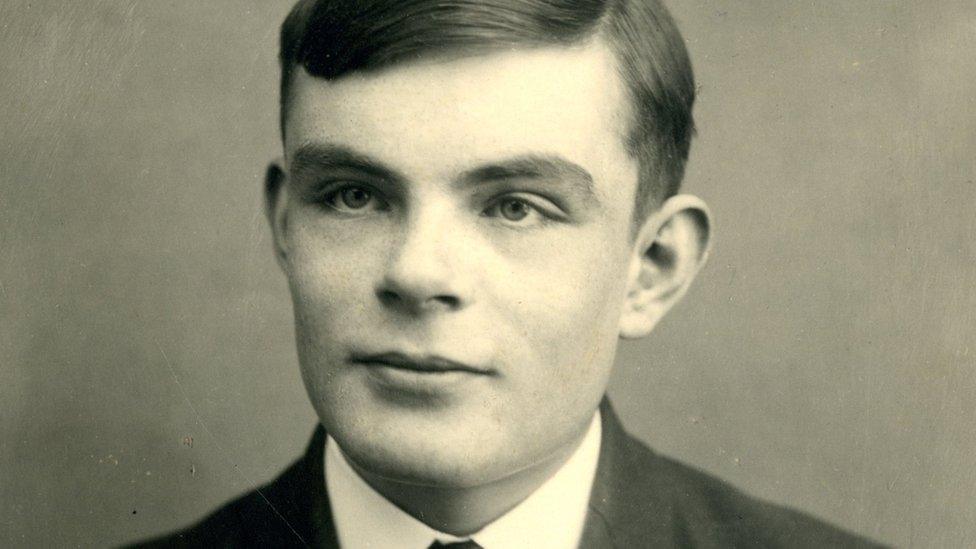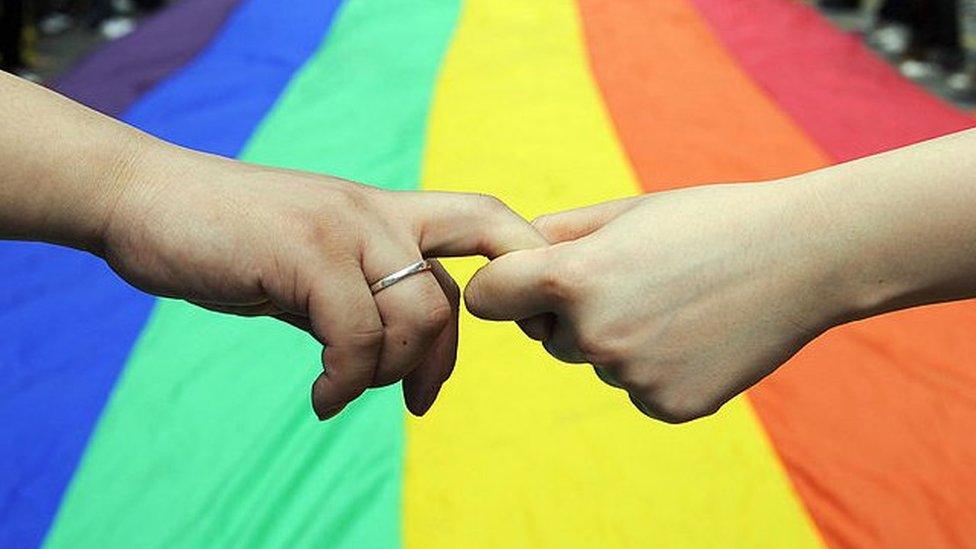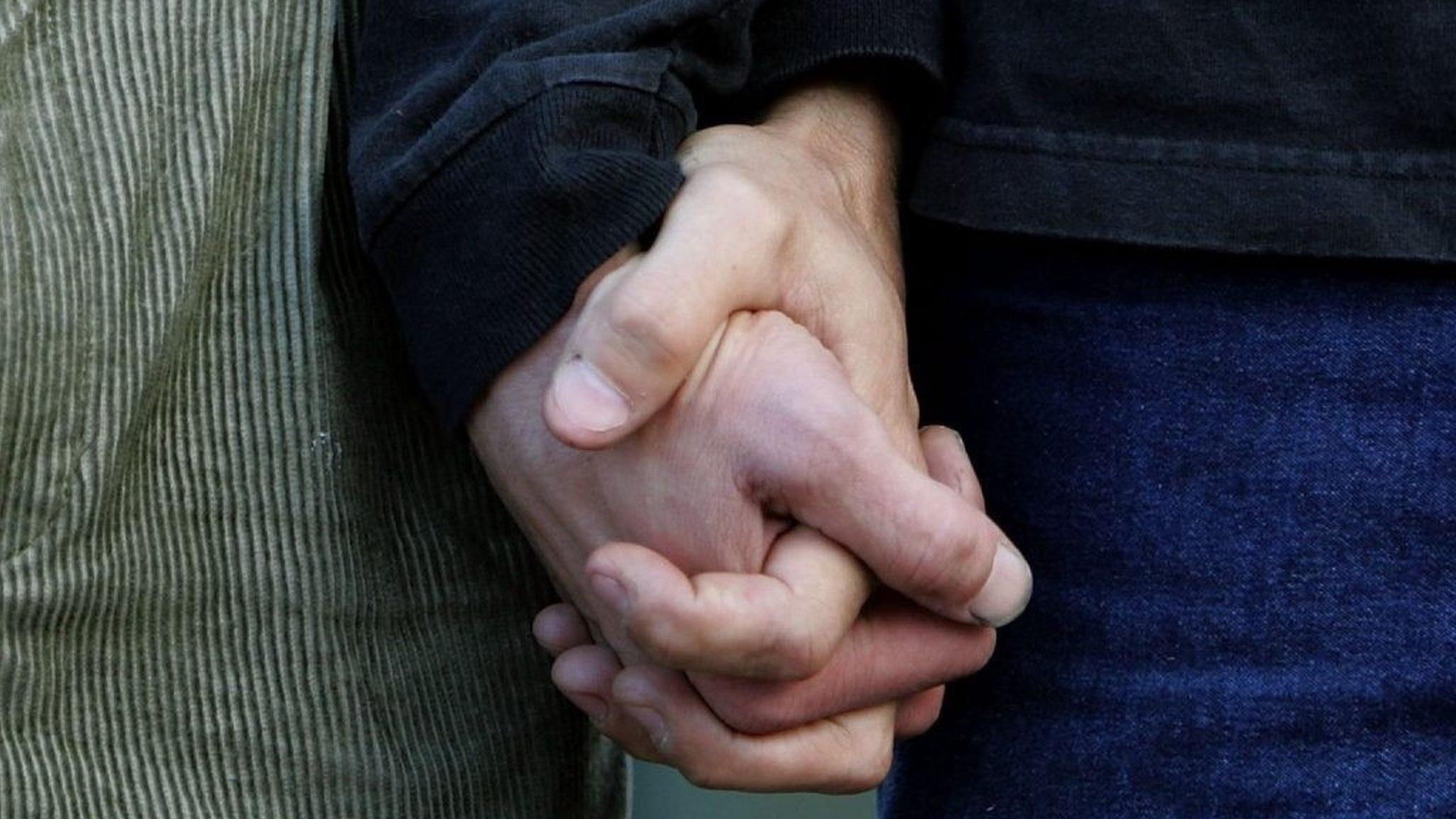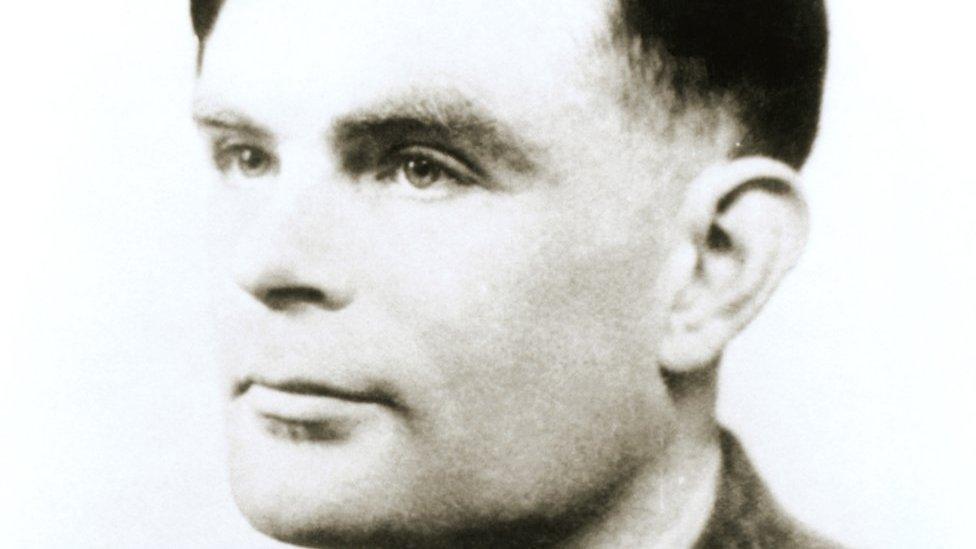Turing Law: NI's 'gay pardon' cases turned down
- Published

The new law was approved by Stormont MLAs in 2016 and came into effect in June last year
The only two men in Northern Ireland to seek pardons for abolished gay sex offences have failed in their bids to have their convictions quashed.
A law came into force in 2017 allowing people to have convictions disregarded for gay offences that are no longer crimes.
That means they would no longer appear on criminal records.
The so-called Turing Law also removes the requirement to disclose abolished offences on job applications.
The legislation was approved by the Northern Ireland Assembly in 2016.
But, so far, only two people in Northern Ireland have applied to the Department of Justice (DoJ) to have their convictions disregarded.
'Disappointing'
Both applications were unsuccessful. There was a very limited criteria under which the two applications could be successful.
In other parts of the UK, applications were turned down because the conviction involved having sex in a public place which is still a crime.

World War Two code-breaker Alan Turing was given a posthumous pardon in 2013
The Rainbow Project, a Northern Ireland-based LGBT support group, supported both men in their applications.
"The introduction of pardon measures for historic convictions was an important move in recognising that criminalising consenting gay and bi men was always wrong," said its spokesman John O'Doherty.
"This criminalisation damaged many people's lives and left them with a criminal record for doing nothing wrong.
"While it is disappointing that more people didn't apply for a pardon, it doesn't take away from the important message sent by the introduction of pardons."
According to the latest government figures, more than half of those in other parts of the UK who applied for a pardon under Turing Law failed to have their convictions disregarded.
Who was Alan Turing?
The law has been dubbed Turing Law, after the World War Two code-breaker Alan Turing.
Turing, the Bletchley Park code-breaker, was convicted in 1952 of gross indecency with a 19-year-old man.
He was later chemically castrated and died in 1954 after poisoning himself with cyanide.
His pardon, almost 60 years later, followed a Private Member's Bill introduced by Lord Sharkey.
The Lib Dem peer said it was "a momentous day for thousands of families up and down the UK".
- Published28 June 2018

- Published31 August 2017

- Published31 January 2017

- Published20 October 2016
